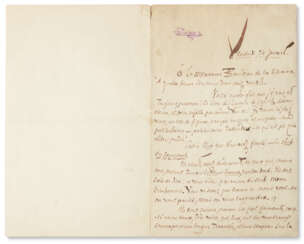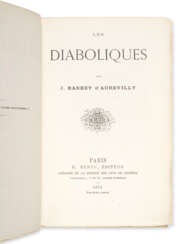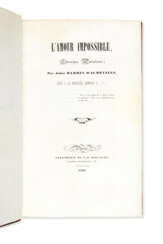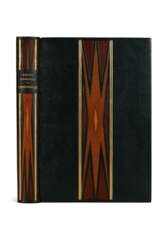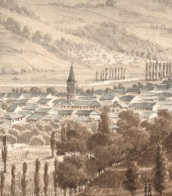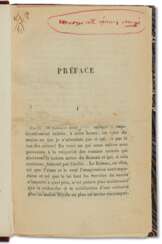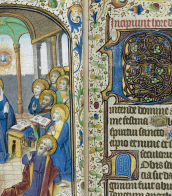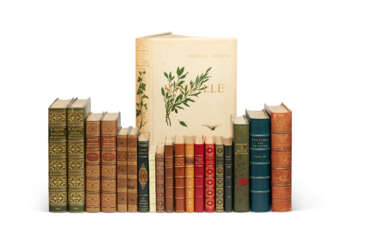jules barbey d'aurevilly (1808 - 1889)
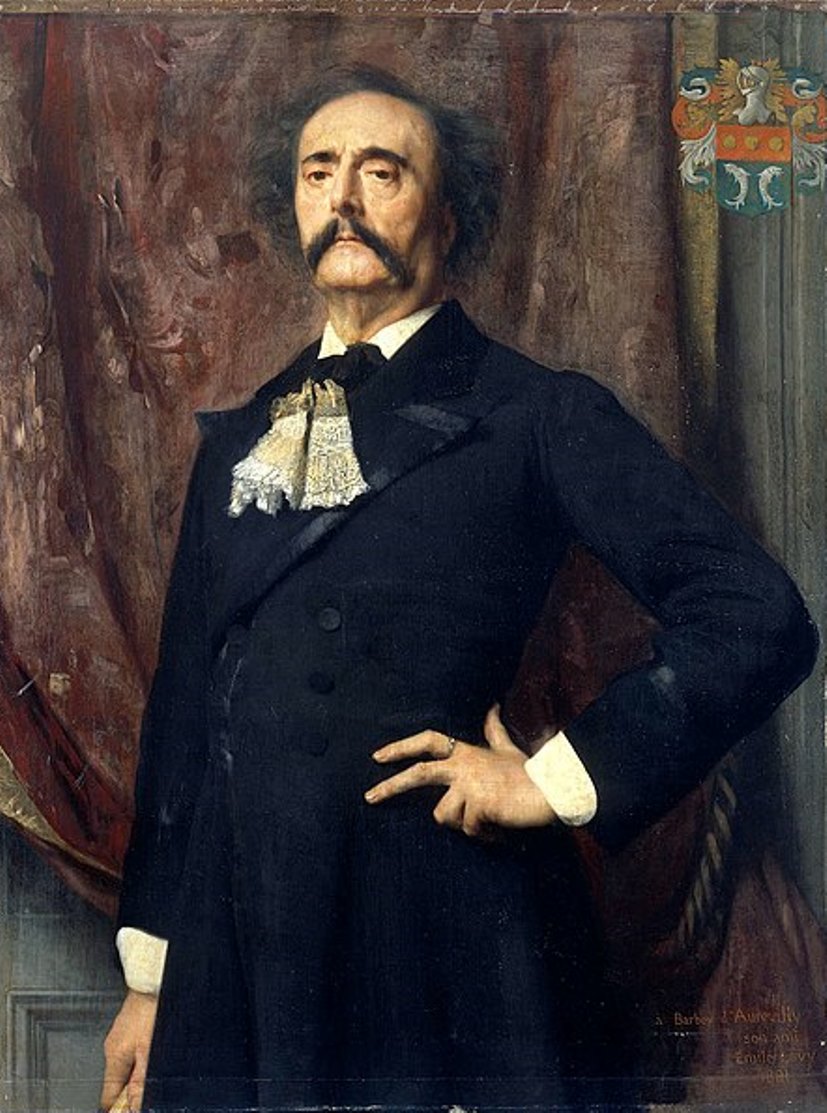
Jules Barbey d'Aurevilly, born Jules Amédée Barbey d'Aurevilly, was a French writer, critic and essayist.
After studying law at the University of Caen, d'Aurevilly gained popularity in 1852 as a literary critic for the Bonapartist newspaper Le Pays, which was influential among the decadents of the late 19th century.
In literature, d'Aurevillys specialized in tales of macabre mysteries that explored ulterior motives and hints of evil, but without the supernatural. He was a decisive influence on writers such as Auguste Villiers de l'Isle-Adam, Henry James, and Marcel Proust.
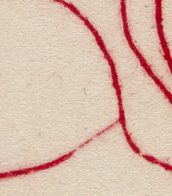

Jules Barbey d'Aurevilly, born Jules Amédée Barbey d'Aurevilly, was a French writer, critic and essayist.
After studying law at the University of Caen, d'Aurevilly gained popularity in 1852 as a literary critic for the Bonapartist newspaper Le Pays, which was influential among the decadents of the late 19th century.
In literature, d'Aurevillys specialized in tales of macabre mysteries that explored ulterior motives and hints of evil, but without the supernatural. He was a decisive influence on writers such as Auguste Villiers de l'Isle-Adam, Henry James, and Marcel Proust.
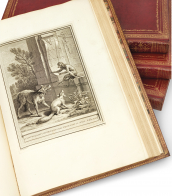

Jules Barbey d'Aurevilly, born Jules Amédée Barbey d'Aurevilly, was a French writer, critic and essayist.
After studying law at the University of Caen, d'Aurevilly gained popularity in 1852 as a literary critic for the Bonapartist newspaper Le Pays, which was influential among the decadents of the late 19th century.
In literature, d'Aurevillys specialized in tales of macabre mysteries that explored ulterior motives and hints of evil, but without the supernatural. He was a decisive influence on writers such as Auguste Villiers de l'Isle-Adam, Henry James, and Marcel Proust.


Jules Barbey d'Aurevilly, born Jules Amédée Barbey d'Aurevilly, was a French writer, critic and essayist.
After studying law at the University of Caen, d'Aurevilly gained popularity in 1852 as a literary critic for the Bonapartist newspaper Le Pays, which was influential among the decadents of the late 19th century.
In literature, d'Aurevillys specialized in tales of macabre mysteries that explored ulterior motives and hints of evil, but without the supernatural. He was a decisive influence on writers such as Auguste Villiers de l'Isle-Adam, Henry James, and Marcel Proust.


Jules Barbey d'Aurevilly, born Jules Amédée Barbey d'Aurevilly, was a French writer, critic and essayist.
After studying law at the University of Caen, d'Aurevilly gained popularity in 1852 as a literary critic for the Bonapartist newspaper Le Pays, which was influential among the decadents of the late 19th century.
In literature, d'Aurevillys specialized in tales of macabre mysteries that explored ulterior motives and hints of evil, but without the supernatural. He was a decisive influence on writers such as Auguste Villiers de l'Isle-Adam, Henry James, and Marcel Proust.


Jules Barbey d'Aurevilly, born Jules Amédée Barbey d'Aurevilly, was a French writer, critic and essayist.
After studying law at the University of Caen, d'Aurevilly gained popularity in 1852 as a literary critic for the Bonapartist newspaper Le Pays, which was influential among the decadents of the late 19th century.
In literature, d'Aurevillys specialized in tales of macabre mysteries that explored ulterior motives and hints of evil, but without the supernatural. He was a decisive influence on writers such as Auguste Villiers de l'Isle-Adam, Henry James, and Marcel Proust.
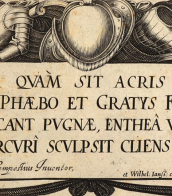

Jules Barbey d'Aurevilly, born Jules Amédée Barbey d'Aurevilly, was a French writer, critic and essayist.
After studying law at the University of Caen, d'Aurevilly gained popularity in 1852 as a literary critic for the Bonapartist newspaper Le Pays, which was influential among the decadents of the late 19th century.
In literature, d'Aurevillys specialized in tales of macabre mysteries that explored ulterior motives and hints of evil, but without the supernatural. He was a decisive influence on writers such as Auguste Villiers de l'Isle-Adam, Henry James, and Marcel Proust.

